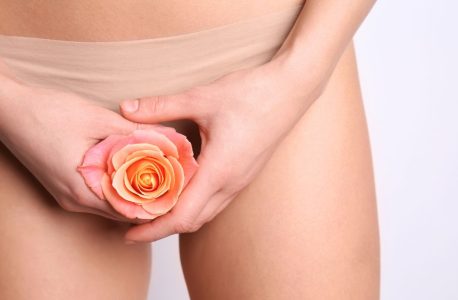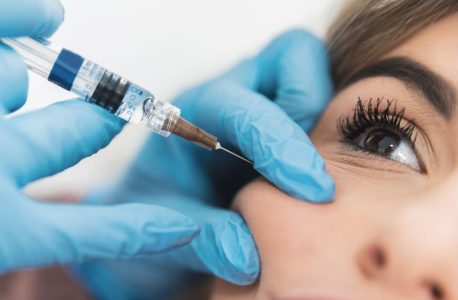Índice
In this article we explore in detail what lymphatic massages are, including what they are for, how the lymphatic system works, the main benefits, the techniques used and contraindications.
What is the lymphatic system?
The lymphatic system is closely related to the cardiovascular system. It plays a major role in the human body’s defense mechanisms, filtering out pathogens and producing white blood cells and antibodies.
It is also fundamental in the distribution of fluids and nutrients throughout the body, as it is responsible for draining excess fluids and proteins to avoid retention in the tissues.
The fluid that circulates in this system is called lymph. It is derived from blood plasma but is more liquid and transparent.
In addition to the lymph, the system also includes the lymphatic capillaries, lymph nodes, spleen, tonsils and thymus.
How important are lymphatic massages?
Lymphatic drainage is a technique that helps the lymphatic system perform its functions more efficiently.
Through gentle, rhythmic movements, it is possible to stimulate the circulation of lymph, helping to speed up the removal of unwanted substances from the body. It is particularly beneficial for reducing edema, promoting post-operative recovery, improving circulation and even for relaxation and stress relief.
Benefits of lymphatic massages
Lymphatic massages have gained popularity due to their multiple benefits for health and well-being.
Below are its main benefits.
Improved lymphatic circulation
It gently stimulates the lymphatic system, improving the circulation of lymph throughout the body. This specialized technique uses light, rhythmic movements to promote lymph flow, which is crucial for removing waste and toxins from body tissues.
Reducing fluid retention
One of the main advantages of lymphatic drainage is its ability to reduce fluid retention. The technique effectively directs excess fluid to the lymph nodes, where it can be processed and eliminated from the body, resulting in a visible reduction in volume.
Aids in detoxifying the body
Lymphatic drainage plays a vital role in detoxifying the body. By stimulating the flow of lymph, it aids in the efficient elimination of toxins and metabolic waste, thus promoting an internal cleansing that benefits the whole body.
Reduces oedema
Particularly in the post-operative period, lymphatic drainage is extremely beneficial, helping to reduce edema and speed up the recovery process. In addition, they are effective in treating conditions such as lymphedema and other disorders related to the lymphatic system.
Help improve immune function
As well as removing toxins, lymphatic drainage also ends up strengthening the immune system. By ensuring the effectiveness of the lymphatic system, it helps the body fight infections and maintain a healthy balance.
How long does a lymphatic massage last at Living Clinic?
Each lymphatic massage session lasts approximately 45-60 minutes, depending on the area to be treated.
Lymphatic massage contraindications
Lymphatic massages, although beneficial for many, do have some contraindications, including:
Acute Infections and/or Fever: People with active infections, fever or acute illnesses should avoid lymphatic drainage, as stimulating the lymphatic system can spread the infection more quickly throughout the body;
Decompensated Congestive Heart Failure: Individuals with severe heart problems, especially those with decompensated congestive heart failure, should avoid lymphatic drainage. Sudden mobilization of fluids can overload an already weakened heart;
Deep Vein Thrombosis (DVT): Lymphatic drainage is contraindicated for people with DVT, as it can dislodge a blood clot, leading to serious complications such as pulmonary embolism;
Severe or Uncontrolled Hypotension: Individuals with very low or unstable blood pressure may experience a worsening of symptoms due to the influence of lymphatic drainage on circulation.
Cancer or History of Cancer: Patients with active cancer or a history of cancer should consult a doctor before undergoing lymphatic drainage, as there are some concerns related to the spread of cancer cells.
Renal insufficiency: Patients with severe renal insufficiency should avoid lymphatic drainage, as the mobilization of fluids can increase the load on the kidneys.
Severe bronchial asthma: Although not an absolute contraindication, people with severe asthma should be assessed individually, as drainage techniques can influence breathing.
There may be other contraindications, so you should talk to your specialist before going ahead with the treatment.
How much does lymphatic massage cost?
The price of each lymphatic massage session can vary depending on a number of factors, so a specific assessment of the patient is required. However, the average price is around €40 to €50 per session. There may also be a variation in the price of individual sessions if you purchase a pack of multiple sessions.
Schedule an appointment at Living Clinic (Porto)
Schedule a free assessment to receive a personalized treatment plan, receive a quote and clarify all your doubts.
Living Clinic is located at Av. da Boavista 117 6º, Sala 607, 4050-115 Porto. Manual lymphatic drainage sessions are carried out at this location.
Responsible for the treatment

Dermatofunctional physiotherapist, specialist in facial and body shaping and rejuvenation, post-surgical recovery from plastic surgery and postpartum recovery. Areas of intervention: EMSCULPT NEO, Coolsculpting, EMTONE, facial, body and vulvovaginal radiofrequency, IPL (Intense Pulsed Light), X-Wave Optimal, among others.
Schedule an Appointment
- Are you looking for more information about a specific treatment?
- Would you like to learn more about Living Clinic?
- Would you like to receive the opinion of our specialists?
- Are you interested in scheduling a consultation?






